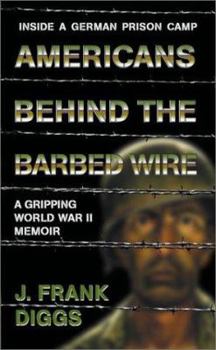Americans Behind the Barbed Wire
Select Format
Select Condition 
Book Overview
Drawing on personal experience and eyewitness testimony, this compelling account of life inside a German P.O.W. camp describes the real hazards, hardships, and conditions of American prisoners of the... This description may be from another edition of this product.
Format:Paperback
Language:English
ISBN:0743474821
ISBN13:9780743474825
Release Date:January 2003
Publisher:UNKNO
Length:192 Pages
Weight:0.25 lbs.
Dimensions:7.8" x 0.5" x 4.3"













